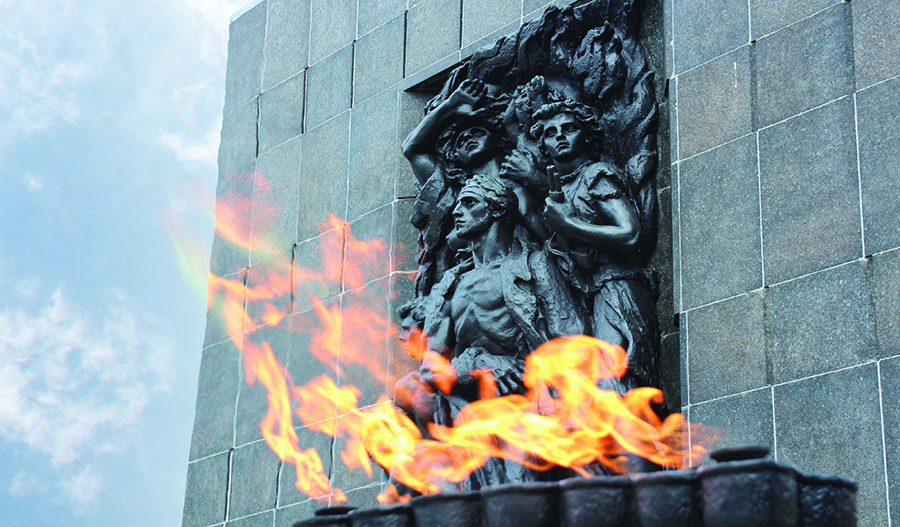
Photo: Rafal Grunt
The monument is located in the area of the former ghetto, in the vicinity of the POLIN Museum of the History of Polish Jews. A copy of the monument was also erected at the Yad Vashem Institute in Jerusalem.
On April 28, San Francisco Opera and Taube Philanthropies stage a special concert called Rise Up And Resist: A Commemorative Concert on the 80th Anniversary of the Warsaw Ghetto Uprising. It is one of many being held around the world to honor the memory of the Uprising, its fighters and supporters.
Music had a special place in the hearts of the Jewish people, as they struggled to maintain some semblance of humanity in the face of Nazi barbarism, refreshing their spirits, providing emotional expression and sustaining communal solidarity.
This concert, presented by members of the San Francisco Opera Adler Fellows and the San Francisco Opera Orchestra, will feature music by Szymanowski – a piece performed at the last concert played by the Jewish Symphony Orchestra in the Warsaw Ghetto on April 12, 1942 – Chopin and Beethoven, as well as folk and religious music celebrating Jewish, Polish-Jewish and Polish cultural heritage.
As part of Hitler’s solution for ridding Europe of Jewish people, the Nazis in 1940 started establishing ghettos in various Polish cities to contain the Jews until they could be executed. The Warsaw Ghetto was set in the old Jewish quarter of the city, and by the summer of 1942, around 500,000 were living there, many without housing, and suffering from starvation and disease. At this time, the Nazis were sending more than 5,000 people a day to the death camp at Treblinka, and by April the following year, as the deportations continued, the Jewish Fighting Organisation – known as ŻOB – was determined to resist, and gradually took control of the Ghetto.
The deportations stopped, but the victory in the ghetto was short-lived, because on April 19, Himmler launched a special operation to clear it in honor of Hitler’s birthday on the 20th. April 19 was also the first day of Passover, and it was on this day that the uprising began. Although 2,000 SS men and German army troops moved in with tanks and rapid-fire artillery, around 1500 Jewish guerrillas opened fire with a motley array of weapons. By the third day, the Germans changed tactics and entered the ghetto in small roaming bands, as the resistance fighters were hiding in underground bunkers, tunnels and sewers. The Jews managed to hold them at bay for nearly a month, but they knew they were bound to lose. Nevertheless they bravely chose to die fighting and inflict as many casualties on the Germans as possible. The Germans shot 7,000 of the captured Jews, sent another 7,000 to Treblinka and the remainder to forced-labor camps. Ultimately, they razed the ghetto to the ground, and dynamited the Great Synagogue of Warsaw.
Despite the Germans plans to clear the Warsaw Ghetto in three days, the Uprising lasted from April 19 to May 16, 1943.
San Francisco Opera’s Rise Up And Resist: A Commemorative Concert on the 80th Anniversary of the Warsaw Ghetto Uprising takes place at 7.30 pm on Friday, April 28, at the Dianne and Tad Taube Atrium Theater, on the fourth floor of the Veterans Building, 401 Van Ness Avenue, San Francisco. Further information and booking details can be found on the San Francisco Opera website.
Information sourced from:
San Francisco Opera program notes
